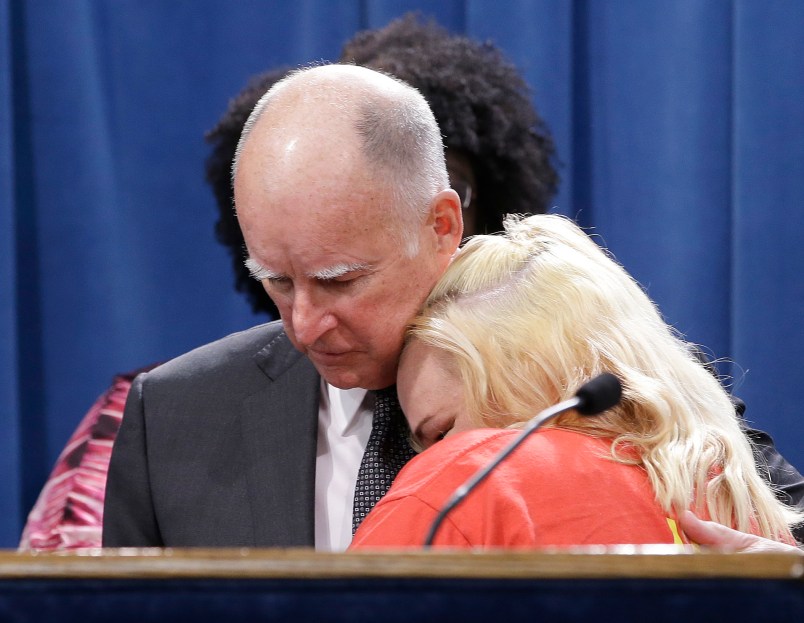LOS ANGELES (AP) — Gov. Jerry Brown signed a bill into law Monday giving California the nation’s highest statewide minimum wage of $15 an hour by 2022.
That and a similar effort in New York mark the most ambitious moves yet to close the national divide between rich and poor. Experts say other states may follow, given Congress’ reluctance to act despite entreaties from President Barack Obama.
“This is about economic justice. It’s about people. It’s about creating a little, tiny amount of balance in a system that every day becomes more unbalanced,” Brown said before signing the bill at the Ronald Reagan State Building in downtown Los Angeles.
Republicans and business groups warn that the move could cost thousands of jobs, while a legislative analysis puts the ultimate cost to taxpayers at $3.6 billion a year in higher pay for government employees.
A $15 base wage will have “devastating impacts on small businesses in California,” Tom Scott, executive director of the state branch of the National Federation of Independent Business, said in a statement. “Ignoring the voices and concerns of the vast majority of job creators in this state is deeply concerning and illustrates why many feel Sacramento is broken.”
Democrats who control the Legislature approved the compromise legislation Thursday, days after the agreement was announced. The measure passed with no Republican support.
The bill will bump the state’s $10 hourly minimum by 50 cents next year and to $11 in 2018.
Hourly $1 raises will then come every January until 2022, unless the governor imposes a delay during an economic recession. Businesses with 25 or fewer employees have an extra year to comply.
Wages will rise with inflation each year thereafter.
The Democratic governor negotiated the deal with labor unions to head off competing labor-backed ballot initiatives that would have imposed swifter increases with fewer safeguards.
About 2.2 million Californians now earn the minimum wage, but University of California, Irvine, economics professor David Neumark estimated the boost could cost 5 to 10 percent of low-skilled workers their jobs.
Brown has said California, with the world’s eighth largest economy, can absorb the raises without the problems predicted by opponents.
California and Massachusetts currently have the highest statewide minimum wage at $10. Washington, D.C., stands at $10.50. Los Angeles, Seattle and other cities have recently approved $15 minimum wages, while Oregon officials plan to increase the minimum to $14.75 an hour in cities and $12.50 in rural areas by 2022.
New York’s state budget includes gradually raising the $9 minimum wage to $15, starting in New York City in three years and phasing in at a lower level elsewhere. An eventual statewide increase to $15 would be tied to economic indicators like inflation.
___
Thompson reported from Sacramento, Calif.
Copyright 2016 The Associated Press. All rights reserved. This material may not be published, broadcast, rewritten or redistributed.







Proud of my Governor. Jerry Brown FTW! Now I need to ask for a raise.
And STFU to the Tom Scotts of the world who espouse extreme greed and disguise it as being devastating to small business. Maybe a rising wage is a tide that will lift all boats.
yeah… I sorta support this law… my beef is that it takes too long to bring the minimum wage up and that the Legislature and Jerry had their hands forced because of the threat of a referendum to raise minimum wage in California…
San Francisco and Los Angeles have already set $15 minimum… it sucks that it only goes up $.50 next year and doesn’t hit $15 until 2022… by then cost of living will have caught up or passed that…
Ooh, very good. Not that inflation is a problem now (in fact, we need more of it - a 3% target would be healthier for the economy) but inflation lowered the minimum wage by 40% from 1970 to 1990 despite nominal increases.